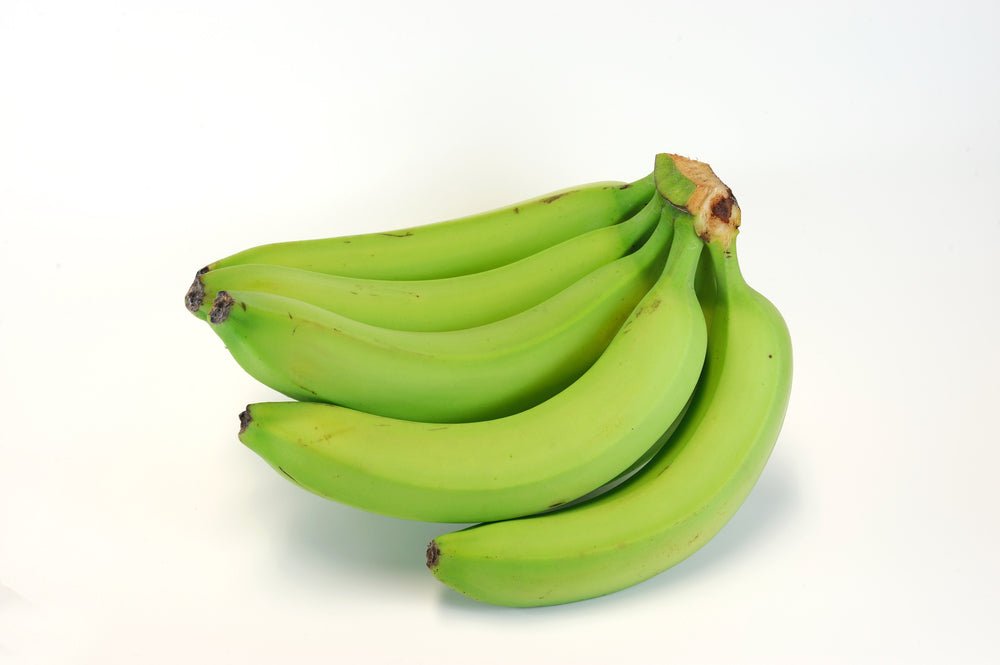Your cart is empty
Free shipping on all US orders


Free shipping on all orders

Bananas are a favorite fruit for most people due to their sweetness and mild flavor. However, as with any other food crop, there are different strains- some of which look very different from the typical banana we eat every day.

The Cavendish banana has been around since 1960 and was developed by agricultural scientists in order to fill the market gap left by the Gros Michel banana strain (which had become virtually extinct).
The Cavendish is extremely popular and accounts for 99% of all bananas exported all over the world. It has a creamy texture and sweet taste, making it an ideal option for breakfast foods like smoothies or cereal bars. As well as dessert dishes featuring ice cream or yogurt.
But green bananas are not entirely uncommon either- certain subtypes are prized for their higher fiber content, while others are valued for their unique flavor (which some claim taste more like plantains than bananas).
Vitamins: They are rich in B6, B12 and Vitamin C.
Minerals: Bananas also contain potassium, calcium, phosphorous, iron, copper zinc, and manganese.
Phytonutrients- Green bananas contain flavonoids like epicatechin which act as antioxidants. They also contain pectin- a soluble fiber which can increase the size of probiotic colonies in the digestive tract.
Surprisingly, bananas also contain serotonin, the same neurochemical deficient in people diagnosed with depression. However, it won't have any noticeable effect on your mood since it does a poor job of crossing the blood-brain barrier to elicit effect.
Boost Bone Strength: Bananas are rich in potassium, magnesium, and calcium- all elements which promote bone strength. Potassium and magnesium work together to regulate muscle function and contractility.
Regulate Blood Pressure: Bananas are rich in fiber, vitamin B6 and potassium- all of which can help lower blood pressure and reduce oxidative and inflammatory load.
Promote Regularity: The high fiber content of bananas will promote regular bowel movements and reduce constipation. The green variety in particular, is an excellent low FODMAP food and suitable for people grappling with IBS thanks to the presence of resistant starch.
Kidney Health: Green bananas lend themselves to preservation of kidney health thanks to generous potassium content, especially in hypertensive patients at risk of renal failure.
Blood Sugar Management- green fruits and veggies have the major advantage of lower sugar content. This means a much slower spike in insulin levels and improved control thanks to the slow release of carbs into blood.